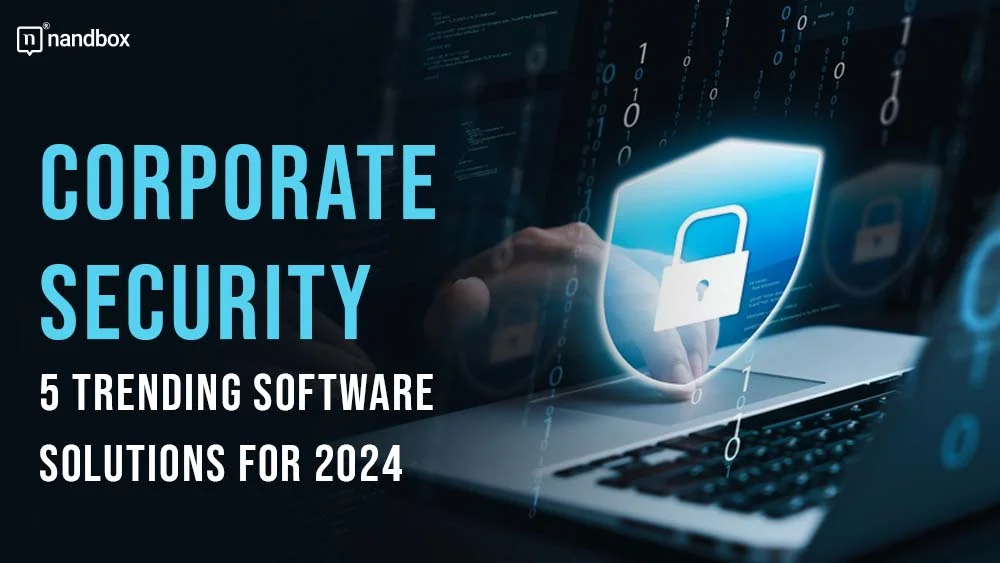Corporate security has never been more critical. A troubling Statista report found that in 2023, three out of four U.S. companies were at risk of a serious cyberattack. This concern stems from the steady rise in cyberattacks over recent years, with a staggering 480,000 incidents reported in 2022.
As cyber threats become more sophisticated, businesses must stay ahead of the curve by embracing cutting-edge software solutions. In 2024, several trending technologies are revolutionizing how companies safeguard their data, assets, and overall security infrastructure.
Let’s dive into the top fintech software solutions making waves in corporate security this year.
5 Trending Software Solutions for Corporate Security
1. AI-Powered Threat Detection
Artificial Intelligence (AI) has evolved from a trendy concept to a crucial element in corporate security. AI-driven threat detection systems now play a key role in identifying and neutralizing threats in real time. By analyzing vast amounts of data, these systems can spot unusual patterns and behaviors that signal potential security breaches.
According to Security Intelligence, IBM has recently developed AI security solutions capable of detecting anomalies such as ransomware in under 60 seconds. This rapid detection is particularly significant given that ransomware attacks are among the most prevalent forms of cyber threats.
In 2022 alone, there were 236.1 million ransomware incidents globally, accounting for about 20% of all cybercrimes that year, Forbes reports. With AI’s ability to quickly address these threats, companies can better safeguard their data and respond swiftly to potential attacks.
2. Blockchain for Data Integrity
Blockchain’s design includes cryptographic hash functions that detect data tampering and digital signatures that verify data authenticity. Its decentralized nature eliminates single points of failure, making it harder for attackers to compromise the entire system.
Although blockchain is often associated with cryptocurrencies, its benefits extend far beyond, offering enhanced data security and transparency across various sectors. As education about blockchain’s broader applications grows, its potential to revolutionize data protection and digital trust becomes increasingly evident.
How Does Blockchain Technology Prevent Fraud in Cryptocurrency Transactions?
Blockchain prevents fraud through its consensus mechanisms and cryptographic security. Once a transaction is recorded on the blockchain, it is nearly impossible to alter. The network’s decentralized nature also ensures that malicious actors cannot easily compromise the system.
3. Cloud Security Solutions
As businesses increasingly migrate to the cloud, ensuring robust security for digital and physical environments is crucial. Cloud-based visitor management solutions play a crucial role in this by enhancing physical security within workplaces.
Greetly notes that these systems centralize access control, allowing administrators to manage visitor records and permissions from a single, remotely accessible platform. This streamlines scheduling and provides real-time updates.
Integration with existing security systems, like access control and surveillance cameras, strengthens security by automating temporary access credentials. It also provides comprehensive monitoring.
Additionally, a visitor management solution improves compliance by maintaining accurate visitor logs in the cloud, which are easily accessible for audits and regulatory purposes. They also enhance the visitor experience through features like pre-registration and digital badges, while their scalability accommodates growing businesses.
How is Data Security Ensured in Cloud Storage?
Data security in cloud storage is ensured through encryption (both at rest and in transit), access controls, and regular security audits. Cloud providers implement robust security measures to protect data from unauthorized access and breaches.
4. Zero Trust Security Models
According to McAfee, the average enterprise faces a staggering 2,200 or more misconfiguration incidents each month, leading to public exposure of sensitive data. This highlights the growing importance of SaaS security, especially since traditional security models need to catch up in today’s complex threat landscape.
Enter zero trust, a security framework that’s gaining traction. Zero Trust follows the principle of “never trust, always verify,” ensuring that no one, whether inside or outside the organization, has default access. Instead, it demands continuous identity checks and strict access controls.
While zero trust is proving to be a game-changer in access control, its adoption has been gradual, as reported by Forbes. Cisco reports that while nearly 90% of companies have started incorporating some zero trust elements, only 2% have fully mature zero trust systems.
Despite this slow uptake, zero trust is on track to become a standard practice in enterprise cybersecurity.
What is SaaS Security?
SaaS (Software as a Service) security involves protecting cloud-based applications and data hosted in a SaaS environment. This includes securing access to these applications, ensuring data privacy, and preventing unauthorized access or breaches.
5. Automated Incident Response
Incident response automation uses AI and machine learning to streamline cybersecurity by swiftly analyzing alerts, reducing false positives, and automating routine tasks. This technology helps security teams manage the overwhelming volume of data and alerts, leading to faster incident detection, improved response times, and cost savings.
Automated tools integrate with various data sources and use policy-driven playbooks to enhance efficiency and effectiveness. This allows teams to focus on high-priority threats and strategic activities. These tools also are expected to handle increasingly complex incidents with greater autonomy as AI advances.
Overall, in 2024, corporate security is all about staying ahead of threats with innovative and effective software solutions. By leveraging AI, blockchain, cloud, and more, companies can protect their data, employees, and assets like never before.
Whether you’re a small business or a global enterprise, investing in these trending technologies is essential for safeguarding your organization. They help protect against the ever-evolving landscape of cyber threats.




